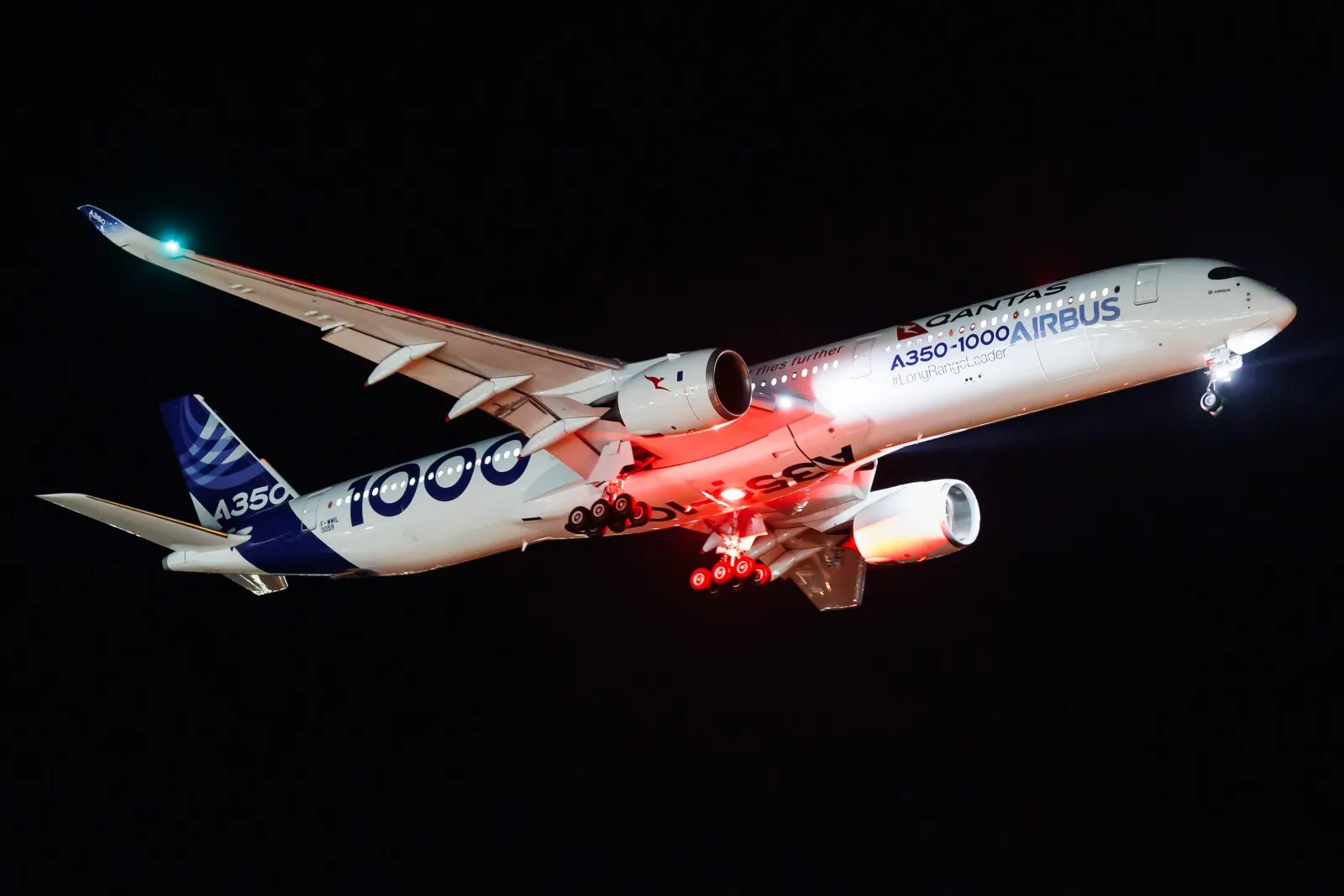
Qantas to place largest order in its history
May 01, 2022

Qantas is set to make headlines with its largest aircraft order in history, signaling a significant expansion of its fleet. The Australian airline aims to enhance its capacity and improve operational efficiency as it responds to a surge in travel demand post-pandemic. This ambitious order will include a mix of long-haul and short-haul aircraft, enabling Qantas to modernize its services and reduce its carbon footprint. The decision reflects the airline's commitment to sustainability and innovation, positioning it for future growth in an increasingly competitive aviation market. The move is expected to bolster Qantas's strategic objectives over the coming decades.
Qantas has made headlines recently with its announcement to place the largest order in its history, significantly enhancing its fleet and positioning itself for future growth. This monumental decision underscores the airline's commitment to modernizing its operations and expanding its service offerings. In this article, we will explore the implications of this order, the models involved, and how it will affect Qantas and its passengers.
The Details of the Order
The order consists of a substantial number of aircraft, with Qantas opting for the latest and most fuel-efficient models available. This move not only aligns with the airline's sustainability goals but also aims to meet the increasing demand for air travel. Below is a detailed breakdown of the aircraft models included in the order:
| Aircraft Model | Quantity Ordered | Key Features |
|---|---|---|
| Boeing 787 Dreamliner | 50 | Fuel-efficient, long-range, advanced technology |
| Airbus A350 | 20 | Improved aerodynamics, reduced noise, eco-friendly |
| Boeing 737 MAX | 30 | Short to medium-haul, enhanced passenger comfort |
Impacts on Airline Operations
This landmark order is set to have a profound impact on Qantas' operations. The introduction of these new aircraft will enable the airline to:
- Expand Routes: With more fuel-efficient planes, Qantas can explore new international destinations and increase frequency on existing routes.
- Reduce Operating Costs: Newer aircraft are generally more fuel-efficient, which will significantly lower operating costs and allow Qantas to offer competitive pricing.
- Enhance Customer Experience: The latest models come equipped with improved cabins and amenities, ensuring a better in-flight experience for passengers.
Sustainability Goals
In a world increasingly focused on sustainability, Qantas is taking significant steps to reduce its carbon footprint. The new aircraft models are designed with advanced technology that minimizes emissions. By investing in a modern fleet, Qantas aims to achieve its goal of net-zero emissions by 2050.
Furthermore, the airline is also implementing sustainable aviation fuel (SAF) initiatives, which will complement its new fleet's eco-friendly features. The combination of cutting-edge aircraft and sustainable practices positions Qantas as a leader in environmental stewardship in the aviation sector.
Financial Considerations
Placing such a monumental order requires a strategic financial approach. Qantas has indicated that it will fund this purchase through a combination of cash reserves and financing options. The financial implications will be closely monitored by investors and analysts alike. Below are some key financial considerations surrounding this historic order:
| Financial Aspect | Details |
|---|---|
| Total Estimated Cost | Approximately $20 billion |
| Funding Sources | Cash reserves and financing |
| Expected ROI | Enhanced operational efficiency and increased market share |
Market Position and Competition
This order is not just a game-changer for Qantas but also a strategic move within the competitive landscape of the airline industry. With major carriers upgrading their fleets, Qantas aims to maintain its market position against competitors. The integration of these new aircraft allows Qantas to compete on the basis of:
- Fleet Modernization: Keeping up with or exceeding the technological advancements of rival airlines.
- Customer Service: Providing a superior travel experience that attracts and retains customers.
- Operational Efficiency: Reducing costs while increasing capacity and service frequency.
Conclusion
Qantas' decision to place the largest order in its history marks a significant milestone in its journey towards modernization and growth. With an eye on sustainability and customer experience, the airline is positioning itself to not only meet current market demands but also to lead the industry into a more sustainable future. As the aviation landscape continues to evolve, Qantas' strategic investments will be closely watched by industry stakeholders, competitors, and passengers alike.
Related Articles

Explore Thailand: The Best Islands to Visit for Paradise, Adventure, and Relaxation

The Ultimate Guide to the Best Islands in Thailand for Your Next Getaway

Do babies need passports? How to get a passport for a newborn

How to get a U.S. passport fast: here’s how to expedite the process

What is Mobile Passport Control: 5 reasons why you should use it

SENTRI vs. Global Entry: A detailed guide

Do you need a passport to go to the Bahamas? Let’s find out

Do you need a passport to go to Mexico? A detailed guide

Do you need a passport to go to Canada? We got the answer

Do You Need a Passport for a Cruise: An Essential Travel Guide

Booster Seat Requirements: All the Rules to Follow in Your Rental Car

What Are the World’s Most Powerful Passports, and How Does Yours Rank?

How to Take a Passport Photo at Home: A Helpful Guide

You've got to have heart! Southwest's new livery

Your opinion: Should water be free on low cost carriers?

Young women bolder than guys as solo travellers
